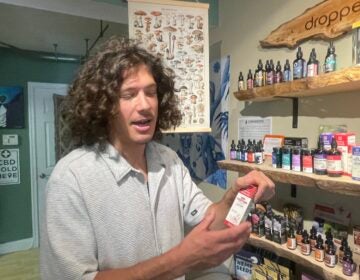Experts, Philly mayor want more color in the green rush
Philadelphia will host one of the first conferences for black cannabis entrepreneurs in October.
-
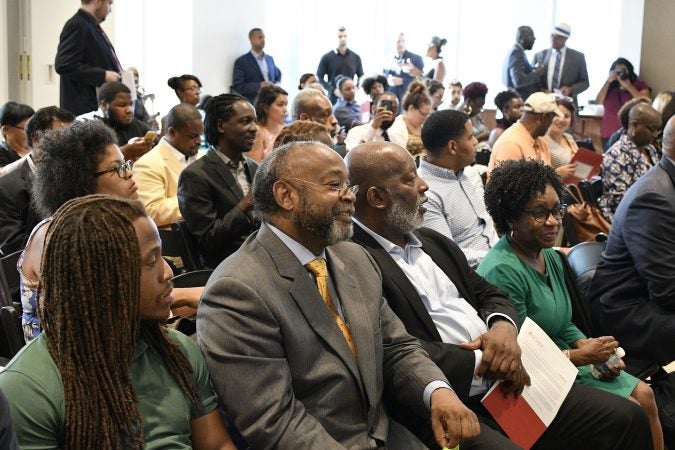
Standing-room-only crowd at a forum on the business of medicinal and recreational use of cannabis in the African-American community, at an event held in Center City, on Thursday. (Bastiaan Slabbers for WHYY)
-
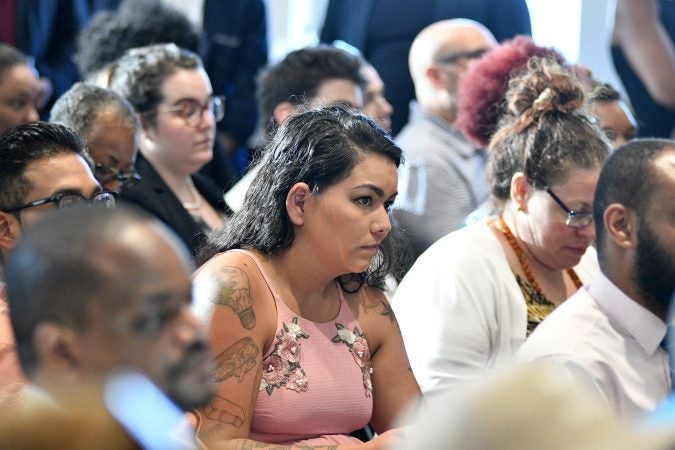
SRO crowd attends a forum on the business of medicinal and recreational use of cannabis in the African-American community, at an event held in Center City, on Thursday. (Bastiaan Slabbers for WHYY)
-

Audience members look over literature at a forum on the business of medicinal and recreational use of cannabis in the African-American community, at an event held on Thursday. (Bastiaan Slabbers for WHYY)
-
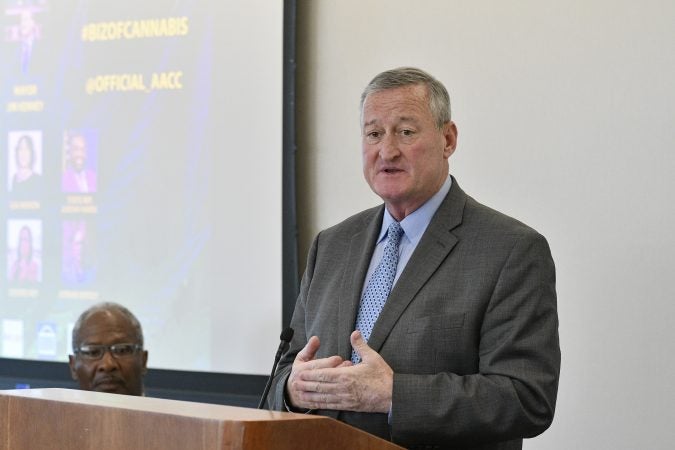
Mayor Jim Kenney speaks to a SRO crowd at a forum on the business of medicinal and recreational use of cannabis in the African-American community, at an event held on Thursday. (Bastiaan Slabbers for WHYY)
-
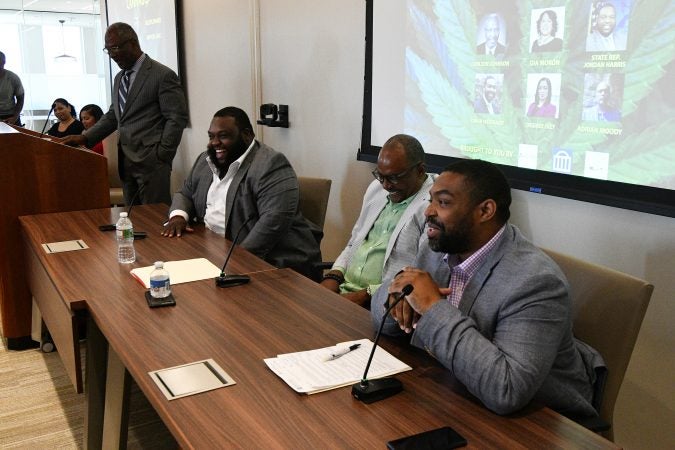
A forum on the business of medicinal and recreational use of cannabis in the African-American community was well attended Thursday in Center City. (Bastiaan Slabbers for WHYY)
-
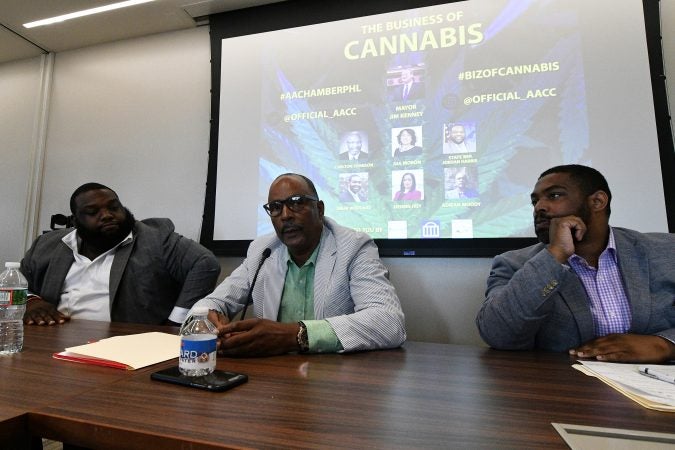
From left, state Rep. Jordan Harris, D-Philadelphia, Adrian Moody and Omar Woodard take part in a forum on the business of medicinal and recreational use of cannabis in the African-American community. (Bastiaan Slabbers for WHYY)
-
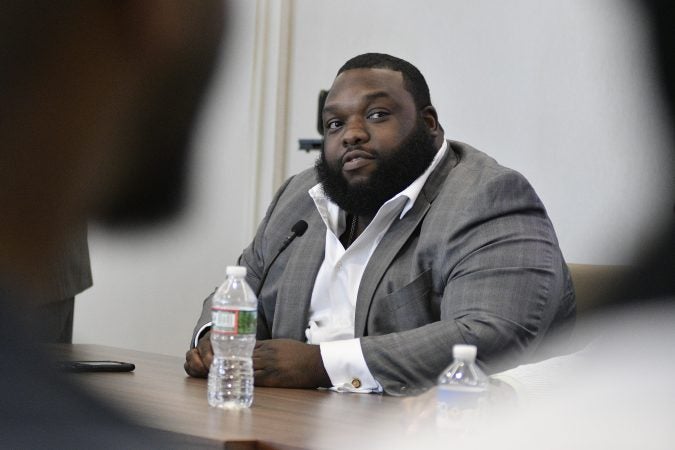
State Rep. Jordan Harris, chairman of the Pennsylvania Legislative Black Caucus, takes part in a forum on the business of medicinal and recreational use of cannabis in the African American community. (Bastiaan Slabbers for WHYY)
-
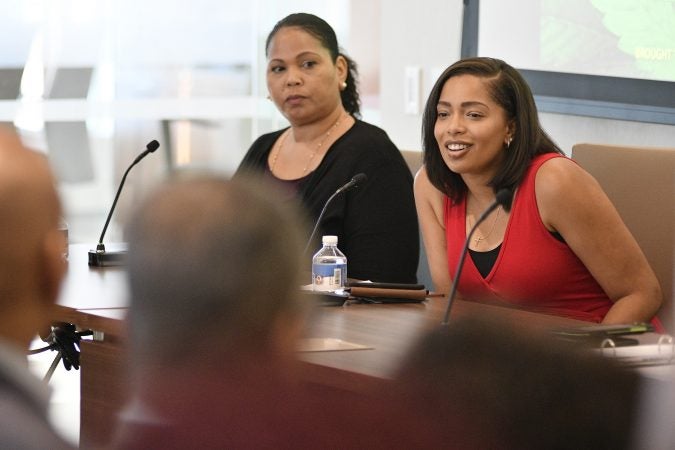
Gia Morón, executive vice president of WomenGrow, and Desirée Ivey, Philadelphia market leader for WomenGrow, participate in a forum on the business of medicinal and recreational use of cannabis in the African-American community. (Bastiaan Slabbers for WHYY)
With the endorsement of Mayor Jim Kenney, Philadelphia will host one of the first conferences for black cannabis entrepreneurs this fall.
The Colorado-based coalition Women Grow will hold the event to bring more color to the white-dominated industry.
Desirée Ivey, Philadelphia market leader for Women Grow, said there are plenty of opportunities for black people in the cannabis industry.
“We need to get on this now because this is a billion-dollar industry,” she said. “And we all can benefit from it. We all can feed our kids and our families … whatever your angle is, there’s ways to do it in this industry.”
The announcement came during a Thursday panel discussion about black inclusion in the cannabis business.
As more municipalities decriminalize the drug, generating billions in sales and tax revenue, African-Americans are underrepresented.
Cannabis generated more than $8 billion in U.S. sales last year. Pennsylvania’s auditor general estimated legal cannabis could mean nearly $600 million in tax revenue for the state.
Official numbers around black-owned cannabis businesses have yet to be released, but some estimate the number to be between 1 to 4 percent.
A criminal record is one of the main roadblocks to entry for black entrepreneurs with aspirations to market cannabis. Criminal background checks are a requirement in the dispensary permit application process.
In Pennsylvania, “if the individual has been convicted of a criminal offense relating to the sale or possession of illegal drugs, narcotics or controlled substances,” he or she cannot be involved with the establishment.
State Rep. Jordan Harris, D-Philadelphia, supports the move to legalize recreational cannabis.
He recently celebrated passage of the Clean Slate bill, which offers some individuals with criminal records a chance to seal them after 10 years without being convicted of a new crime. He said lawmakers are exploring options for vacating marijuana drug convictions.
“I think people are seeing that the war on drugs was a war on people,” he said. “And that there are unintended consequences that we’re now dealing with and because of that I think you see more and more folks being supportive of how we move the process forward.”
At the city level, Kenney said he is talking with parole and probation officials about possible reforms for cannabis offenders that would remove the hardship that comes with a cannabis conviction.
“It affects everything,” said Kenney. “It affects their ability to serve in the military. It’s just crazy, and we need to get some common sense back and get some revenue in the door, educate our kids and fix our infrastructure.”
Access to capital is another barrier for black entrepreneurs. To open a dispensary in the state requires more than $150,000 to cover fees and mandated assets.
However, there are other opportunities to benefit from the growing industry.
Gia Morón, executive vice president of Women Grow, said an individual’s skill set and expertise can also be valued assets. She advised newcomers to look beyond dispensing and growing, and explore the ancillary needs such as graphic design or video production.
“Anyone and everyone really can contribute to this industry and help us expand it to the next level,” she said.
WHYY is your source for fact-based, in-depth journalism and information. As a nonprofit organization, we rely on financial support from readers like you. Please give today.


